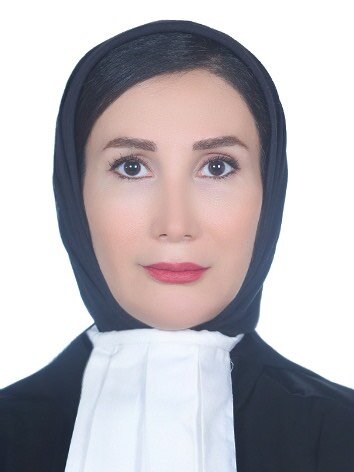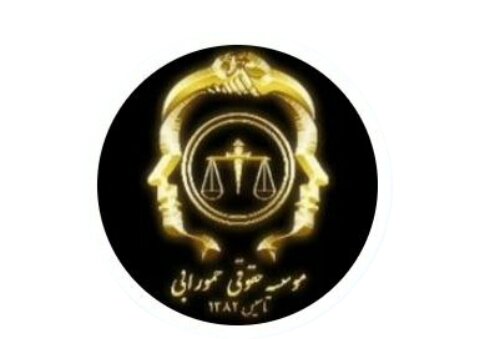Best Franchising Lawyers in Iran
Share your needs with us, get contacted by law firms.
Free. Takes 2 min.
Or refine your search by selecting a city:
List of the best lawyers in Iran
About Franchising Law in Iran
Franchising in Iran has been growing steadily in recent years, with more international brands entering the market. Franchising is regulated by the Iranian Commercial Code and various other regulations. It is important for both franchisors and franchisees to understand their rights and obligations under the law.
Why You May Need a Lawyer
Seeking legal advice in Franchising can be crucial in situations involving contract disputes, territory rights, intellectual property issues, and compliance with local regulations. A lawyer can help navigate the legal complexities and protect your interests in a Franchising agreement.
Local Laws Overview
Key aspects of local laws relevant to Franchising in Iran include the requirement for registration of franchise agreements with the Iranian Ministry of Industry, Mine and Trade, the protection of intellectual property rights, and restrictions on the termination of franchise agreements.
Frequently Asked Questions
1. What are the registration requirements for franchise agreements in Iran?
Franchise agreements must be registered with the Iranian Ministry of Industry, Mine and Trade within a certain timeframe to be valid and enforceable.
2. How are intellectual property rights protected in Franchising agreements in Iran?
Intellectual property rights are protected under Iranian law, and franchisors should ensure that their trademark and other IP rights are properly registered and enforced.
3. Can a franchise agreement be terminated in Iran?
Franchise agreements can be terminated under certain circumstances, but the termination process must comply with Iranian law and the terms of the agreement.
4. Are there restrictions on foreign franchisors operating in Iran?
Foreign franchisors must comply with local regulations and may be subject to restrictions on ownership and operation of businesses in Iran.
5. What are the rights and obligations of franchisees in Iran?
Franchisees have certain rights and obligations under Iranian law, including the right to receive training and support from the franchisor and the obligation to comply with the terms of the franchise agreement.
6. How can a lawyer help in resolving franchise disputes in Iran?
A lawyer can assist in negotiating settlements, representing clients in court, and providing legal advice on the best course of action to resolve franchise disputes in Iran.
7. What are the potential risks of franchising in Iran?
Potential risks of franchising in Iran include legal disputes, cultural differences, and political instability, which can impact the success of a franchise business.
8. What are the advantages of franchising in Iran?
The advantages of franchising in Iran include access to a growing market, local expertise, and established brand recognition, which can help expand a business quickly and cost-effectively.
9. How can I protect my intellectual property in a franchise agreement?
To protect intellectual property in a franchise agreement, franchisors should ensure that their trademarks are registered in Iran, include clauses for IP protection in the agreement, and monitor and enforce their IP rights regularly.
10. What are the common challenges faced by franchisees in Iran?
Common challenges faced by franchisees in Iran include insufficient support from the franchisor, competition from other franchisees, and changes in market conditions, which can affect the success of a franchise business.
Additional Resources
For more information on Franchising in Iran, you can refer to the Iranian Franchising Association and the Ministry of Industry, Mine and Trade. These resources can provide valuable insights and guidance on Franchising laws and regulations in Iran.
Next Steps
If you require legal assistance in Franchising in Iran, it is advisable to consult with a knowledgeable lawyer who specializes in Franchising law. They can provide expert advice and help protect your interests in Franchising agreements and disputes.
Lawzana helps you find the best lawyers and law firms in Iran through a curated and pre-screened list of qualified legal professionals. Our platform offers rankings and detailed profiles of attorneys and law firms, allowing you to compare based on practice areas, including Franchising, experience, and client feedback.
Each profile includes a description of the firm's areas of practice, client reviews, team members and partners, year of establishment, spoken languages, office locations, contact information, social media presence, and any published articles or resources. Most firms on our platform speak English and are experienced in both local and international legal matters.
Get a quote from top-rated law firms in Iran — quickly, securely, and without unnecessary hassle.
Disclaimer:
The information provided on this page is for general informational purposes only and does not constitute legal advice. While we strive to ensure the accuracy and relevance of the content, legal information may change over time, and interpretations of the law can vary. You should always consult with a qualified legal professional for advice specific to your situation.
We disclaim all liability for actions taken or not taken based on the content of this page. If you believe any information is incorrect or outdated, please contact us, and we will review and update it where appropriate.
Browse franchising law firms by city in Iran
Refine your search by selecting a city.















